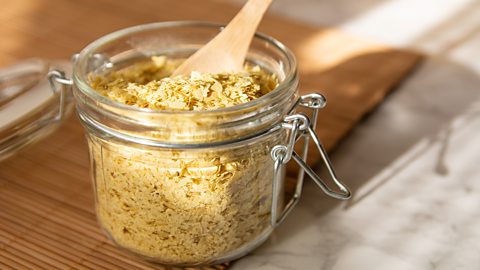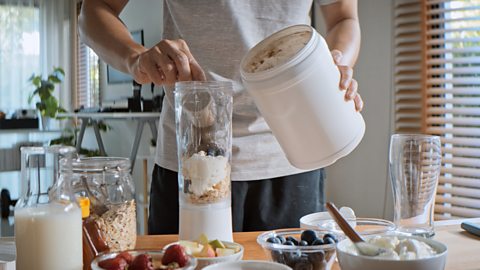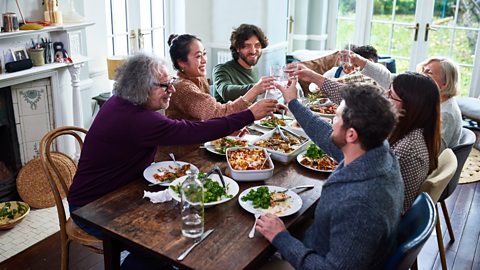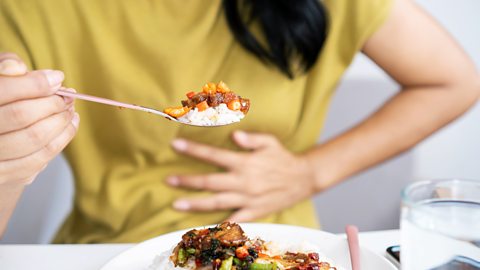The 5 food lessons I live by as a doctor
Dr Xand Van Tulleken is back debunking health claims in the food industry on a new series of Con or Cure. Here, he reveals the lessons that have had the biggest impact on his own health and food philosophy.
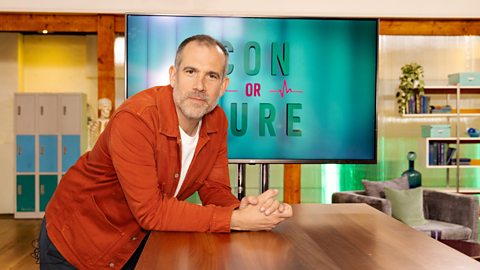
BBC One’s Con or Cure is back for a third series weekdays at 10.15am. Once again, Dr Xand Van Tulleken and journalist Ashley John-Baptiste will be investigating popular health-related claims and revealing whether there are any truths to be found.
“One of the things I love most about Con or Cure is that, when we work on it, we start to see patterns emerge in health myths,” says Xand. “With consumer health products, you start to spot the price point, the claims, the targeting, the subscription model… They all have similar characteristics even if they seem different.”
Even though Xand is a doctor with many years of experience, he is often surprised by the science (or lack of it) around some of the myths he busts on the show – as well as how widely they can be accepted as facts.
Here are five key truths he’s learnt over the years that have changed the way he eats and thinks about food.
It pays to look beyond the labels
“A myth I once believed was that that you can buy ultra-processed food that is made in a factory with lots of ingredients and it can still be good for you. That’s because on the packet it’ll say things like ‘low in fat,’ ‘high in protein’, or ‘no artificial flavouring’.”
Xand and his twin brother Chris have been very vocal about the impact ultra-processed foods have had on their weight and health. But it took Xand longer to come around to the idea of avoiding UPFs.
Chris had declared he no longer wanted them in his life and then, with the two embarking on the podcast A Thorough Examination: Addicted to Food, Xand was convinced by the science. He changed his diet by removing UPFs and lost a considerable amount of weight.
“Now I won’t really buy anything with a health claim on the packet. These labels very strongly suggest that a marketing team has been involved in selling it to me and I’m likely not buying it because it’s ‘real’ food.”
To help work out if something is a UPF, he tries to look out for unfamiliar ingredients.
“I always read the ingredients on the packet to the point where, sometimes, when they’re in really small print, I have to use my phone camera to zoom in on them. The whole thing’s a bit undignified, but it’s vital.”
Healthy pizza
Instead of shop-bought pizza you could make your own with no UPFs
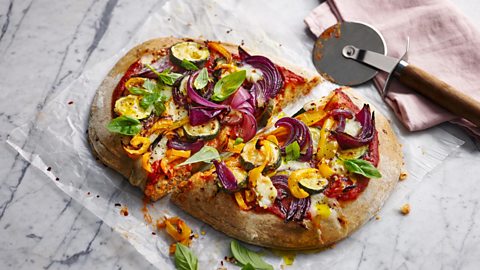
Headlines will always contradict each other
“Core messages about what’s good and bad for you can seem muddled. I’d see a headline saying that saturated fat is bad, another that said the problem was seed oils. Then perhaps one telling me that I should be following a low carb diet and another that veganism is important. It was endless.”
Despite knowing that headlines should be taken with a pinch of salt, Xand found it frustrating to see so much contradiction and confusion in the media.
“But that all just fell away when I decided I was only going to eat non-ultra-processed foods that I’ve made myself. That makes things far more straightforward.”
The key to avoiding UPFs is preparation
“Like many people, I struggle with [the temptation of UPFs] enormously. It’s not like I never have a takeaway or a bar of chocolate – I’m certainly not perfect at this!
“Almost always, the times when I struggle are when I’ve not been able to prepare and make food in advance.
Trail mix
If snacks are your UPF nemesis, make this trail mix to take out and about with you
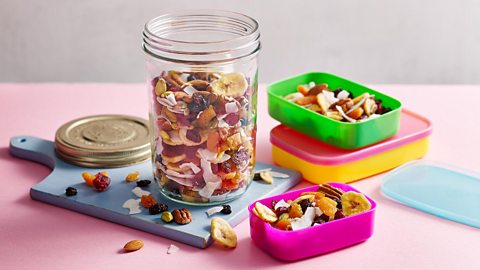
“If over the weekend I’ve managed to batch cook meals and snacks, then that really makes a difference. Likewise, if I make sure I’ve got my water bottle with me, that helps. Then I’m not having to go into a shop so aren’t as tempted.”
Slip ups are almost impossible to avoid
“None of this is easy. The main thing I would say to anyone struggling with what they’re eating is this: it’s not your fault.
“This food that surrounds us, it’s terribly unhealthy and is very aggressively marketed. The current food environment makes it very hard for people to take control of their lives.
“I’m very lucky that I have the time and ability on the weekend to prep some food. But for loads of people, that isn’t the case – for instance there are a lot of people in the UK who don’t have a fridge, let alone a freezer.
“That’s the caution I’d put on all of it. I don’t want to tell anyone what they should do because most of us are just living in this terrible food environment, having a hard time.”
Social media does not have the answer
“The way the diet industry and social media works is that there needs to be a high rate of new claims, which you won’t have time to debunk and can spread rapidly. They are only exciting if they’re new.
“Even if you’ve tried the last 10 and they didn’t work, you feel compelled to move on to number 11.”
Chlorophyll water is just one of the quick-fix social media trends Dr Xand has discussed on Con or Cure
This turns social media into a hotbed of new and seemingly magic solutions for health and weight management, often fuelled by people hungry for clicks and views.
“We emphasise on the show that you cannot get your health information from social media in a way that will truly help you. Social media needs to deliver a quick-fix culture and it and it cannot give you high-quality information that is good for you or tailored to your needs.”
Originally published April 2025.
Watch series three of BBC One’s Con or Cure weekdays at 10.15am. Or catch up on BBC iPlayer.
Want more? Visit BBC Food on Instagram, Facebook and Pinterest or watch the latest Food TV programmes on BBC iPlayer.
